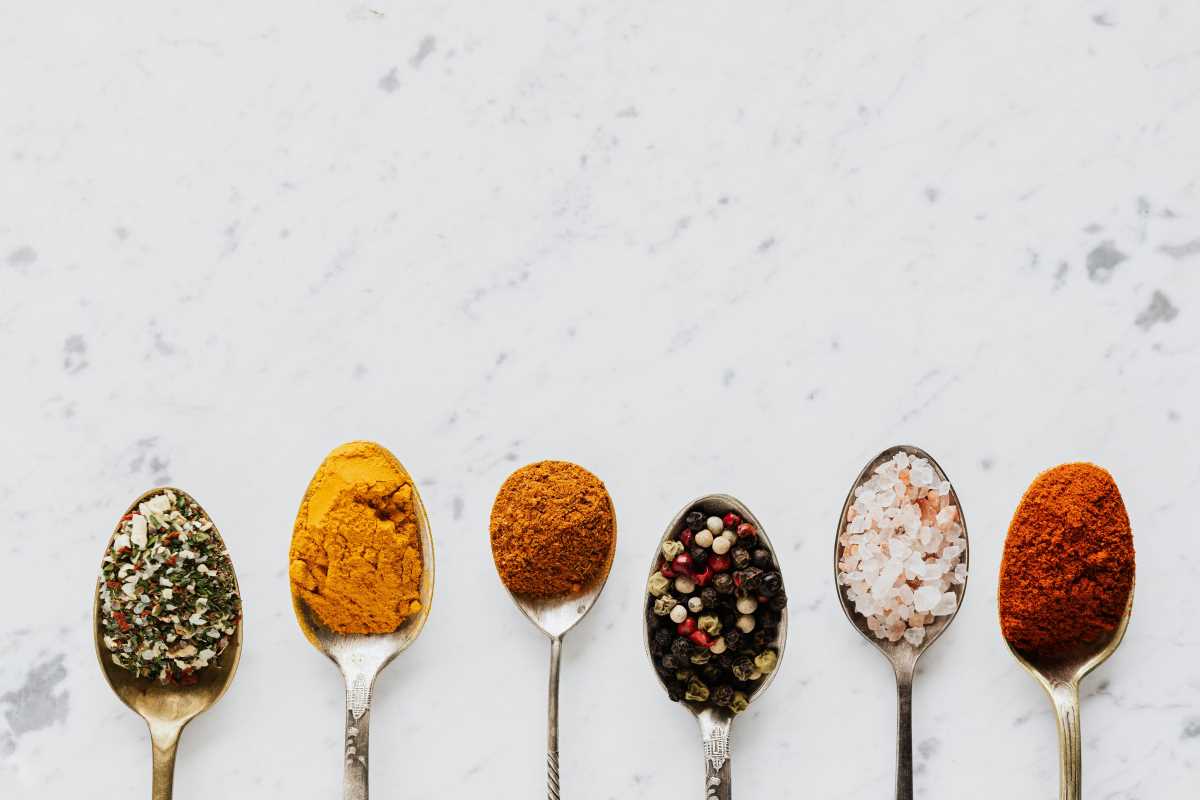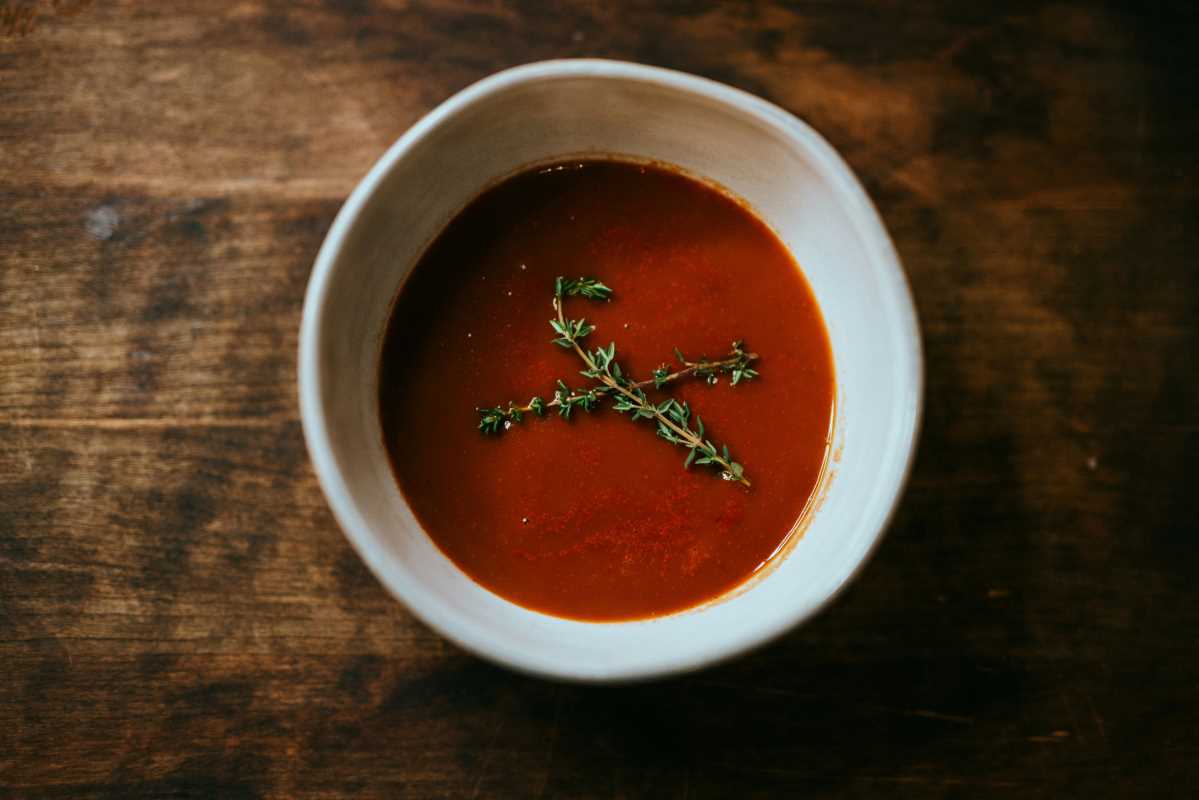Herbs and spices are the unsung heroes of the culinary world. With just a pinch, they can transform a bland dish into a flavorful masterpiece. But these aromatic ingredients are more than just a feast for the senses; they’re also brimming with health benefits. Whether you're spicing up a stew or sprinkling fresh herbs over a salad, you’re not just enhancing flavor but also giving your body a wellness boost. Some herbs and spices are anti-inflammatory, others support digestion, and some even help regulate blood sugar.
If you’ve been relying on salt and pepper as your go-to seasonings, it’s time to diversify your spice rack and reap the rewards. Here are five herbs and spices that not only make your meals taste amazing but also come with impressive health perks.
Turmeric
Bright yellow-orange turmeric isn’t just a staple in curry dishes; it’s also one of the most powerful anti-inflammatory ingredients out there. Its key active compound, curcumin, has been widely studied for its health benefits, including reducing inflammation and aiding in joint health. Turmeric also contains antioxidants, which can protect your body’s cells from damage caused by free radicals.
What’s more, turmeric may support brain health by improving memory and lowering the risk of cognitive decline. Research has even suggested it can aid in managing cholesterol levels and promoting heart health.
How to Use Turmeric in Your Meals
- Stir it into soups, stews, or curries for an earthy kick of flavor.
- Sprinkle turmeric into scrambled eggs or tofu for a vibrant breakfast boost.
- Make a warming golden milk latte by blending turmeric with almond milk, a dash of cinnamon, and a touch of honey.
Just remember to pair turmeric with black pepper. The piperine in pepper enhances curcumin absorption by a whopping 2,000%, ensuring your body gets the maximum benefit.
Cinnamon
Cinnamon isn’t just for desserts; it’s a versatile spice known for its warm, sweet taste and impressive health benefits. This spice is rich in antioxidants that protect your cells and help combat inflammation. Perhaps its most notable benefit is its ability to regulate blood sugar levels. Studies have shown that cinnamon can improve insulin sensitivity, making it a helpful addition to diets for those managing type 2 diabetes.
Cinnamon is also great for your heart, as it may lower LDL cholesterol and triglyceride levels. Its antimicrobial properties can even help fight off certain bacteria.
Easy Ways to Incorporate Cinnamon
- Sprinkle it on oatmeal, yogurt, or smoothies for a sweet-spiced edge.
- Add a stick of cinnamon to your coffee or tea as it brews for a subtle flavor infusion.
- Use it in savory cuisines by adding a dash to marinades for meats or roasted vegetables like sweet potatoes and carrots.
Cinnamon is a pantry essential that works for both sweet and savory dishes, giving you plenty of opportunities to harness its benefits.
Garlic
Garlic isn’t just a flavor bomb for your meals; it’s a nutritional powerhouse with a whole host of health benefits. Its potent compounds, including allicin, have antimicrobial and antiviral properties, helping your body ward off colds and infections. Garlic is also known for boosting heart health by lowering blood pressure, reducing bad cholesterol, and improving circulation.
Beyond that, garlic is a natural immune booster, making it a valuable ally during cold and flu season. Plus, its antioxidants help your body manage oxidative stress, which can reduce the risk of chronic diseases.
How to Bring More Garlic Into Your Kitchen
- Roast whole garlic cloves and spread the softened goodness over toast.
- Sauté minced garlic with olive oil as the flavorful base for pasta sauces or stir-fries.
- Toss raw garlic into salad dressings or hummus for an extra zing.
For maximum health benefits, crush or chop fresh garlic and let it sit for about ten minutes before cooking. This allows the allicin compounds to fully activate.
Rosemary
Rosemary is a woody herb with a fragrant aroma that instantly elevates any dish. But it’s not just its flavor that makes it special. Rosemary contains compounds like carnosic acid, which boost brain function and protect against cognitive decline. It also has anti-inflammatory and antimicrobial properties, supporting overall health and immunity.
This herb is rich in antioxidants and can help improve digestion, making it an excellent choice for post-meal teas or as a seasoning for heavier dishes. Some studies even suggest rosemary could help lower stress levels and improve focus.
Fun Ways to Cook with Rosemary
- Sprinkle chopped rosemary over roasted potatoes or vegetables for a herbaceous kick.
- Add a sprig to marinades for meats or poultry to infuse depth of flavor.
- Brew rosemary tea by steeping fresh or dried rosemary leaves in hot water, adding honey for sweetness.
For a creative twist, try infusing olive oil with rosemary to drizzle over salads or use as a bread dipper. It’s aromatic, delicious, and incredibly easy to make.
Ginger
Few spices have as many roles as ginger. Known for its bright, spicy-sweet flavor, ginger has been a staple in cuisines and medicines worldwide for centuries. It’s a natural powerhouse when it comes to reducing nausea, whether from morning sickness or motion sickness, and it’s known to soothe an upset stomach.
Ginger is also famous for its anti-inflammatory properties, which can help with muscle pain and soreness. Additionally, this root has natural thermogenic capabilities, meaning it helps your body generate heat and may even boost metabolism. And, like many other spices, its antioxidants combat chronic inflammation.
How to Add Ginger to Your Diet
- Grate fresh ginger into smoothies or stir-fries for an aromatic punch.
- Brew ginger tea with slices of fresh ginger boiled in water; add lemon and honey for a soothing drink.
- Use ground ginger in baked goods, such as cookies, muffins, or spice cakes.
Whether fresh, dried, or powdered, ginger is endlessly versatile and pairs beautifully with a variety of flavors.
Actionable Tips for Mixing Things Up
It’s easy to experiment with these herbs and spices when you know where to start. To get more out of them, try these ideas:
- Batch seasonings: Create your own spice blends using cinnamon, turmeric, or ginger to reduce prep time.
- Freezing herbs: Chop fresh rosemary or garlic and freeze them in olive oil using a cube tray for quick culinary boosts.
- Swap and play: Substitute rosemary for thyme or ginger for cinnamon in your recipes to discover new flavor combinations.
Herbs and spices are more than just flavor enhancers; they are tiny bundles of health benefits waiting to elevate your meals. From turmeric’s anti-inflammatory power to rosemary’s brain-boosting compounds, each herb or spice brings unique advantages to your table. Simple adjustments like sprinkling cinnamon on yogurt or adding garlic to soups can transform your dishes and nourish your body at the same time.
 (Image via
(Image via





